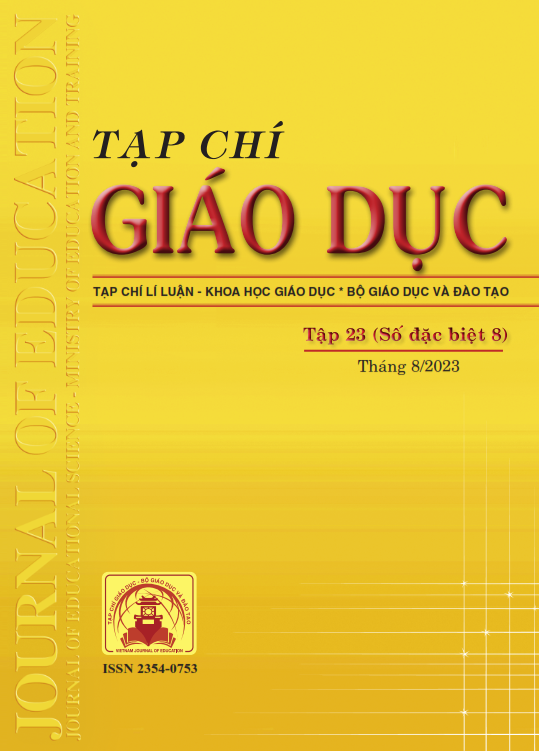Nghiên cứu về tính thụ động trong học tập của sinh viên Trường Đại học Cần Thơ: Thực trạng và khuyến nghị
Tóm tắt
The 4th industrial revolution opens up many learning opportunities for university students. This new context requires students to be equipped with and practice the necessary higher learning skills throughout their university studies. The article introduces a study on the passivity of students at Can Tho University. The authors conducted a survey with 342 students to find out why students did not volunteer to give constructive speech during class hours. The results show that the majority of students are obsessed with sanctions, not only from lecturers, high school teachers, but also classmates. Therefore, it is important to first help teachers, managers and learners to be aware that the formation and development of active, autonomous and creative competence is an important goal of the teaching and learning process. Creating favorable conditions for teaching-learning activities through the establishment of a democratic pedagogical environment to promote the creative dynamism of lecturers and students in innovating learner-centered teaching and learning methods together with appropriate facilities and teaching equipment is the core orientation in training management.
Tài liệu tham khảo
Bộ GD-ĐT (2007). Quyết định số 43/2007/QĐ-BGDĐT ngày 15/8/2007 ban hành Quy chế đào tạo đại học và cao đẳng hệ chính quy theo hệ thống tín chỉ.
Chính phủ (2005). Nghị quyết số 14/2005/NQ-CP ngày 02/11/2005 về đổi mới cơ bản và toàn diện giáo dục đại học Việt Nam giai đoạn 2006-2020.
Dewey, J. (2011). Démocratie et éducation. Suivi de Expérience et éducation. Paris: Armand Colin.
Lebrun, M. (2002). Théories et méthodes pédagogiques pour enseigner et apprendre. Bruxelles: De Boeck.
Lương Văn Hà (2014). Tình trạng thụ động ở học sinh trung học phổ thông khi học môn Ngữ văn và một số biện pháp khắc phục. Tạp chí Giáo dục, 327, 43-44.
Mialaret, G. (2006). Sciences de l’éducation. Paris: PUF.
Nassau, G. (2022). Le CRAPEL, l’autonomie et l’autonomisation: la continuité des travaux à l’Université de Lorraine. Recherches en didactique des langues et des cultures [En ligne], 19(2). https://doi.org/10.4000/rdlc.10850
Neveu, M., & Vincent, H. (2020). L’actepouvoir. Construire l’autonomie du sujet. Penser l’éducation [En ligne], 47. https://doi.org/10.4000/pensereduc.289
Palmade, G. (2005). Les méthodes en pédagogie. Collection Que sais-je ? Paris: PUF.
Puaud, M. (2018). Pédagogies actives: mode d’emploi. Bulletin des bibliothèques de France, 16, 16-21.
Viện Ngôn ngữ học (2003). Từ điển tiếng Việt (tái bản lần thứ 9). NXB Đà Nẵng.
Đã Xuất bản
Cách trích dẫn
Số
Chuyên mục
Giấy phép

Tác phẩm này được cấp phép theo Ghi nhận tác giả của Creative Commons Giấy phép quốc tế 4.0 .












